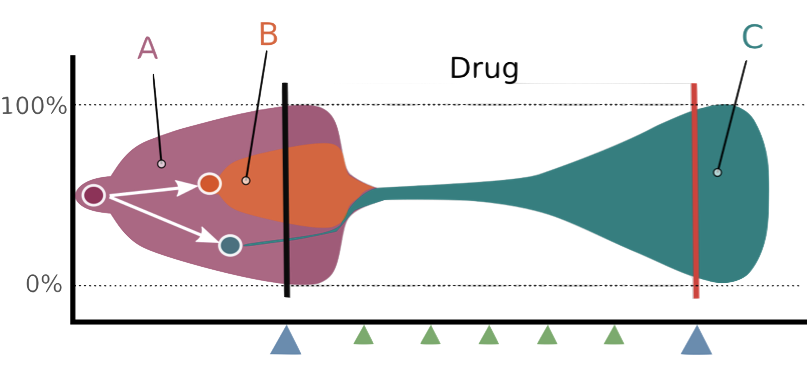Computational and Quantitative Biology PhD
Giulio Caravagna - Subclonal reconstruction of tumour architectures by using machine learning and population genetics

Venue: Teams
ABSTRACT
Most cancer genomic data are generated from bulk samples composed of mixtures of cancer subpopulations, as well as normal cells. Subclonal reconstruction methods based on machine learning aim to separate those subpopulations in a sample and infer their evolutionary history. However, current approaches are entirely data driven and agnostic to evolutionary theory. In this talk I will present a recent work of us, in which we demonstrate that systematic errors occur in the deconvolution analysis if tumour evolution is not accounted for, and I will also show that this is exacerbated when we carry out multi-sampling of the same tumor. To solve these issues, I will present a novel approach for model-based tumor subclonal reconstruction, which combines machine learning with theoretical population genetics. The method has been tested by using public whole-genome sequencing data from 2,606 samples from different cohorts, as well as new data and synthetic datasets. Results show that this method is more robust and accurate than current techniques in single-sample, multiregion and longitudinal data. This approach minimizes the confounding factors of non-evolutionary methods, thus leading to more accurate recovery of the evolutionary history of human cancers.
SPEAKER
Giulio Caravagna is Assistant Professor of Computer Science at the University of Trieste Italy. Giulio runs the Cancer Data Science Laboratory, the research group he started in Trieste (see the Lab page for recent updates). Giulio has a PhD in Computer Science; before coming to Trieste, he has been in London, Edinburgh, Milan, and Pisa. Giulio spent the last 5 years to carry out post-doctoral training in the UK, working in Cancer Evolution (with Andrea Sottoriva at ICR, London) and Machine Learning (with Guido Sanguinetti at Edinburgh).
HOW TO ATTEND
The seminar will be online using TEAMS. Please register to the seminar. We will send you an invite with the link to the seminar.
All Dates
- Friday, 11th December 2020 15:00
Powered by iCagenda





